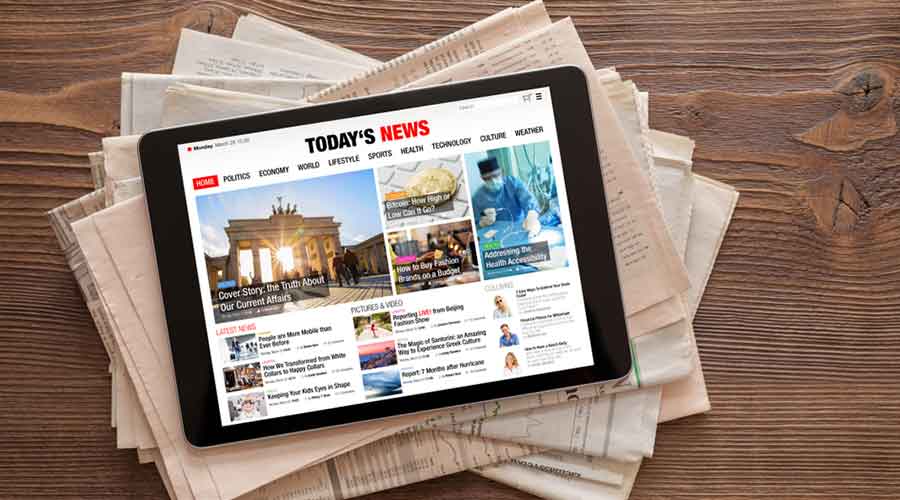Creation and consumption of news are not benign processes. This is because both phenomena — what passes as news content and what consumers think of it — can mirror broader, changing social patterns. The findings of a survey — the Reuters Institute Digital News Report 2021 covered 46 nations around the world — need to be examined in the context of the changes sweeping through the news ecosystem. Some of the inferences are far from surprising. For instance, the report found that readers are increasingly relying on mobile technology to get access to news. The figures are revealing. In India, over 70 per cent of the respondents stated that they used their mobile phones for this purpose, while 82 per cent said that they preferred sourcing news online. Digital media’s gain has, however, been a loss for traditional media platforms. The migration of advertisement revenue from print media to its digital avatar has been discernible for a while now.
But there is a corollary that cannot be ignored. The survey found that India ranks a lowly 31 when it comes to public trust in overall news. Another democracy — the fourth estate is supposed to be one of the sentinels in such polities — the United States of America, fared worse, with only 29 per cent of Americans saying that they trusted what they read. This is troubling. At a time of an unprecedented assault — political, cultural and ideological — on truth, the erosion in belief in the credibility of news may expedite the creation of false narratives. Significantly, the report also found that the chasm between traditional news sources and those from social media is widening. This lays bare an interesting irony. Even though print media and government broadcasting institutions performed credibly on the trust quotient, they — especially the former — are being starved of revenue and resources. Perhaps there is a compelling case for correcting the imbalances in revenue spending by taking into consideration the irrefutable faith that readers continue to vest in the traditional formats. The study is, overall, an indicator of the multiplicity of battles that are being fought across the world of news. Traditional and independent media are battling parched revenues and intimidation, while digital media are being confronted with a precipitous fall in trust along with predatory regulation — the Information Technology (Intermediary Guidelines and Digital Media Ethics Code) Rules, 2021, against which several media firms have moved court, being a case point. These custodial conflicts ironically reveal the media’s relevance in modernity.











